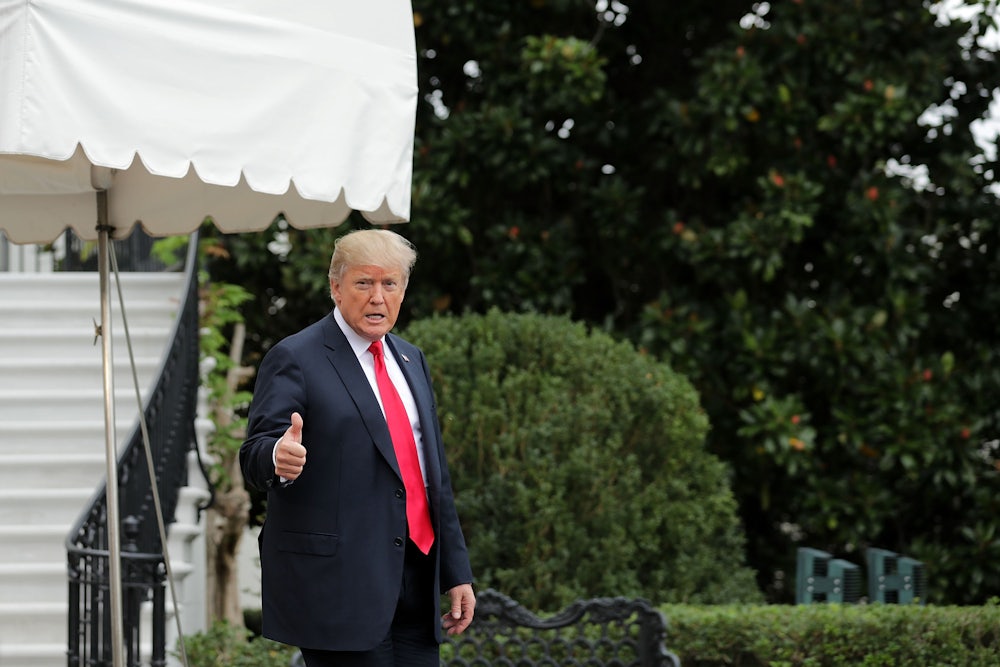Trump is gearing up to decertify the Iran nuclear agreement, which would put the future of the deal in the hands of Congress. While Trump has lambasted the deal repeatedly—including in a fiery speech at the United Nations—and insisted that the deal was badly negotiated, there is no realistic better deal. Though far from perfect, the Iran deal is working—and decertifying it would send a chilling message that America will not honor nuclear agreements to North Korea. But the underlying goal here has never really been about policy—Trump simply seems to not want to have to recertify one of his predecessor’s most important achievements every three months.
The prospect of decertifying the Iran Deal is terrifying because of its possible implications for nuclear programs in both Iran and North Korea. But how we got here is just as unsettling. On Wednesday evening, The Washington Post reported that Trump “threw a fit” when encouraged to keep the deal by Secretary of State Rex Tillerson and Defense Secretary James Mattis:
So White House national security adviser H.R. McMaster and other senior advisers came up with a plan — one aimed at accommodating Trump’s loathing of the Iran deal as “an embarrassment” without killing it outright.
To get Trump, in other words, to compromise.
“McMaster realized we just cannot come back here next time with a binary option — certify or decertify,” an exercise Congress requires every 90 days, said a person familiar with the July discussion. “He put his team to work on a range of other options, including a decertification option that would involve Congress” and would not immediately break the deal.
That “compromise” is the policy that Trump is expected to announce this week: “Under the expected announcement, Trump will declare the deal is not in the U.S. national interest while stopping short of recommending renewed nuclear sanctions.”
Trump’s frequent (and seemingly growing) temper tantrums are alarming, as is the fact that his closest advisers routinely treat him like a toddler. But the biggest and most unsettling aspect of this is how we got to this “compromise.” It wasn’t made for any reason related to policy—it unsettles an acceptable framework by adding considerable, unnecessary, and far-reaching risk. Instead, the United States is shifting its policy toward Iran simply because President Trump doesn’t want to acknowledge any of Barack Obama’s achievements. This compromise was cooked up to please the president’s ego, not because it serves any sort of larger strategic or geopolitical interest.
